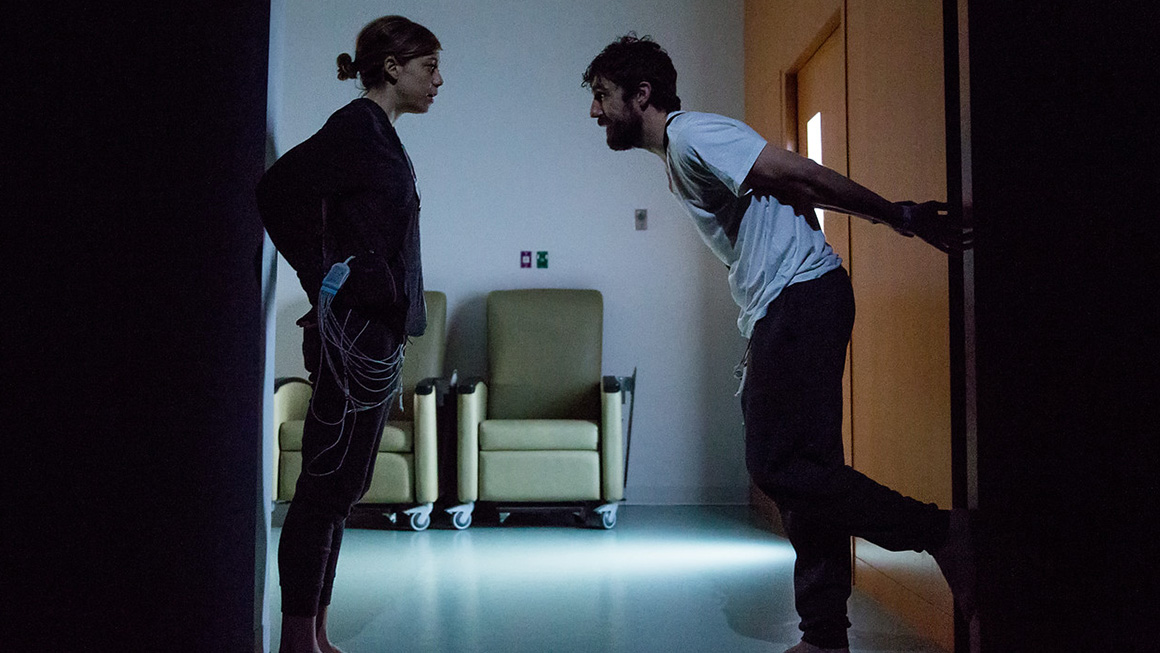

Yamaneika Saunders shines as Kiana, a childhood friend of Beth’s whom she reconnects with upon returning to Long Island, a character that on occasion toes the line of a stereotypical sassy Black friend role but is overall handled with a respectably deft hand. “Life & Beth” is the sort of show that, if anything, features a surplus of talent, with brilliant comedians filling even the smallest and blandest of roles (the pilot in particular makes an unfortunate waste of Janelle James). With a central relationship that never lands quite as impactfully as it clearly means to, the show’s extensive detours into other territory are actually quite welcome, as they often traverse far more compelling landscapes.
Susannah flood actor the effect series#
While that old saying “show don’t tell” isn’t always entirely true, the impact Leonard has on Beth and what she learns from him-from her sales skills to her alcoholism-feels organically built into the series in a way that the much more heavy-handed but ultimately less effective efforts to explore Beth’s relationship with Jane never accomplish. The series hints and gradually builds their connection, effectively setting up a complicated bond that pays off in “Leonard,” one of the most emotionally effective and resonant episodes of the series overall. While Jane often drives the action, she feels at once too plot-convenient and emotionally opaque to strike a resonant cord Beth’s connection to her ne’er do well father Leonard ( Michael Rapaport) is ironically, and in a way that definitely feels unintentional, the far more effectively rendered parental relationship. However, as much as Jane sparks the series’ inciting incident and effectively functions as a major obstacle for Beth to overcome, she never feels rendered with the same sort of graspable humanity that imbues the other major characters, despite an earnest performance from Berlanti. “No one loves you like your mom, and no one hurts you like your mom,” Beth reflects to a captive audience late in the season with the gravity that clearly points to an intended thesis statement.


While ultimately “Life & Beth” aims to zero in on Beth’s fraught relationship with her mother Jane ( Laura Benanti), primarily explored through extended flashbacks featuring Violet Young as a young teenage Beth dealing with the collapse of her parents’ marriage following the failure of her father’s business, Beth’s relationship with Jane is far from the most compelling in the series. Somewhat ironically, the lack of focus here is ultimately easier to forgive because many of the show’s strongest moments come from when it diverges from its intent. The particular combination of elements that comprise Beth’s story are easiest to comprehend in the context of Schumer’s own, which feels nearly prerequisite to this series. The most compelling aspects of “Life & Beth” undoubtedly come from its raw honesty and the connection to Schumer’s own life, but the show’s shortcomings feel similarly rooted in just how close the creator is to the material having such a close perspective often has distortive effects, and this series suffers from a lack of focus particularly common among such autobiographical tales. The obvious parallels to Schumer’s actual childhood and personal life are numerous, and central enough that going into too much detail here would feel like giving the whole series away. The seemingly well-suited job soon reveals itself as unsatisfying, and a convenient excuse to drink regularly in excess while actively ignoring that she has a problem at all. Boyfriend Matt (a delightfully detestable Kevin Kane) is a human disaster barely held together with duct tape who, after the better part of a decade, only proposes marriage at the worst possible moment with the terrible but also terribly funny, “we’re finally getting married, ring TBD” (just the romantic proposal ever girl dreams of). While Sam of “Somebody Somewhere” finds herself in her small hometown having failed to make any lasting mark in New York, in a soul-crushing dead-end job, “Life & Beth” sees the titular protagonist in circumstances that sound quite idyllic-in a long-term relationship with a “New York eight,” excelling in her job as a wine sales representative and up for a significant promotion-but deeply unhappy anyway. However, the more episodes that go by, the more Schumer’s series differentiates itself.


 0 kommentar(er)
0 kommentar(er)
